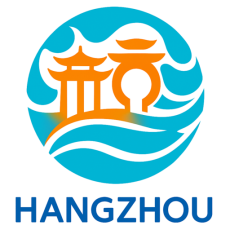
June 6, Beijing – The 7th Beijing Academy AI Conference officially opened today in Zhongguancun, China’s leading tech hub. During the “Embodied Intelligence Salon” session, two high-profile humanoid robots, Unitree G1 and Tiangong 2.0, made a stunning appearance.

These robots recently gained attention for their participation in robot marathons and combat events. Today, they once again drew crowds and sparked conversation about the real-world potential of humanoid robots.
Can Robots Compete and Perform?
Wang Xingxing, CEO of Unitree Robotics, and Xiong Youjun, General Manager of the Beijing Humanoid Robot Innovation Center, shared their views on robots in public competitions.
Wang said that whether on the CCTV Spring Festival Gala or in a robot fighting arena, the main goal is to show the current progress of robotics technology.
“Everyone wants robots to work directly in homes or factories,” Wang explained, “but today’s humanoid robots are not yet ready for such daily tasks.”
From Dancing to Combat: A Path to Embodied Intelligence
Wang believes full-body motion is the ultimate goal of robotics. This includes dancing, fighting, serving tea, washing clothes, and even cooking.
“These are all examples of complex body actions,” he said. “Before we reach the final goal, we will continue to showcase technical breakthroughs through public performances and competitions.”
He also mentioned a surge in demand for humanoid robot rentals, which indicates growing market value. “This shows humanoid robots are not just for display anymore. They are already creating some commercial value.”
A Robot Olympics Is Coming to Beijing
Xiong Youjun, who also joined the panel, holds a positive outlook on humanoid robots in public events. He revealed that the World Humanoid Robot Games will take place in August 2025, right in Beijing.
The event will be held at the Beijing National Stadium (Bird’s Nest). It will feature popular sports and entertainment categories such as sprints, long-distance runs, obstacle courses, relays, football, and dance competitions.
Xiong emphasized the event’s educational value. “These competitions will help the public better understand robotics,” he said. “Watching robots in action will naturally boost people’s knowledge and interest in AI and robotics technology.”
Looking Ahead
Both speakers agree that embodied AI is key to the future of robotics. While robots may not be ready to cook dinner just yet, their ability to move, interact, and perform continues to improve.
With growing public interest and real-world applications, humanoid robots are stepping out of labs and into the spotlight — one race, dance, and match at a time.




